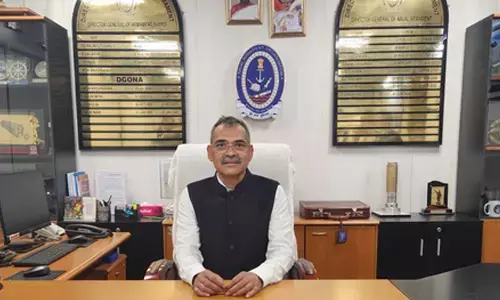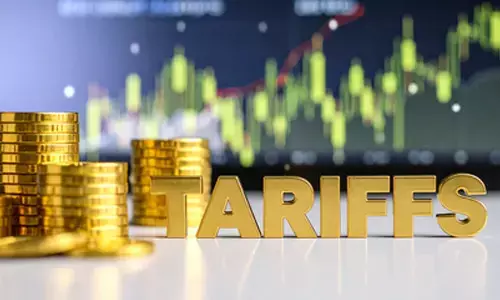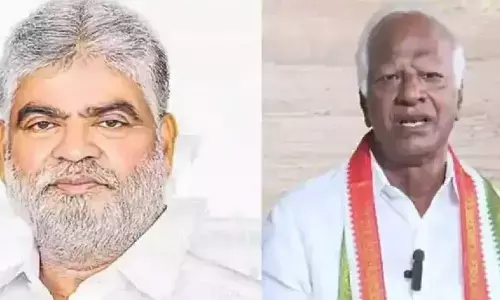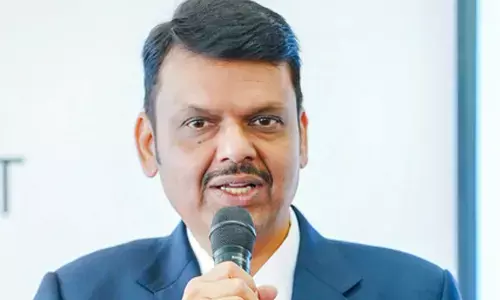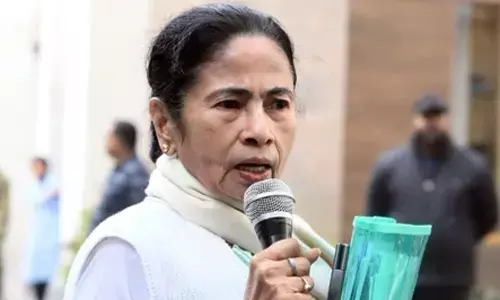Lord Ayyappa’s lullaby to be rerecorded

The TDB wants to bring out the song afresh by adding a word that exists in its original text and missing in the popular musical version, and by correcting a pronunciation error.
Thiruvananthapuram: The Travancore Devaswom Board, which manages the famed Sabarimala temple, is getting ready to re-record with changes a devotional song, played every night to put Lord Ayyappa, the principal deity, to sleep.
"Harivarasanam," a Sanskritised Malayalam song written in 'astakam' (eight stanza) metre, is recited at the hillock shrine located in Pathanamthitta district of the state, routinely as an "urakku paattu" (lullaby) for the deity.
The TDB wants to bring out the song afresh by adding a word that exists in its original text and missing in the popular musical version, and by correcting a pronunciation error.
Though there are many versions of 'Harivarasanam,' the one rendered by legendary Carnatic vocalist and playback singer K J Yesudas and composed in the popular musical format by iconic composer late G Devarajan, is being played for decades at the temple after final poojas.
The newly-appointed TDB president A Padmakumar said the word 'swamy' was there in every line of the original devotional song, believed to have been penned in 1920s, and it might have been omitted for the easiness of rendition when it was brought out in the musical format.
"Swamy" is a term used as honorific title addressing a male deity in Hindu belief. "We want the song to be sung as in the original text… Besides this, the famous line that goes 'Ari Vimardhanam' should be spelt separately which is rendered as a single world in the present version," Padmakumar told PTI.
Yesudas, who himself is an ardent devotee of Lord Ayyappa and a regular visitor of the shrine, had admitted some time back that the words 'ari (enemy) and 'vimardhanam' (destroy) should have been spelt separately. Yesudas had originally sung 'Harivarasanam' song for the 1975 Malayalam film, 'Swamy Ayyappan' and recorded the song afresh later, which has since been played at the shrine.
"I have already discussed the matter with Yesudas…He is in United States at present and is expected to come to Kerala later this month to attend a private function.. I hope that we can fix the final date of rerecording at that time," he said. Incidentally, Padmakumar is the descendant of Konnakathu Janaki Amma, who is believed to have written 'Harivarasanam' over nine decades ago.
For long, it was believed that Kambakudi Kulathur Srinivasa Iyer had originally penned the devotional song. But, the descendants of Janaki Amma came up with a claim some time back that she had originally authored the song. She had submitted the song to the temple as an offering to the deity through her father Ananthakrishna Iyer, who served as the 'melsanthi' (chief priest) of Sabarimala temple from 1907-1920, the family said.
"We have the original handwritten notes of the song by her to prove the authorship… In all records, Srinivasa Iyer's name is mentioned as 'sambadakan' (compiler) of the song," he said. During those days, people would not write their name when a creative work was submitted as an offering at the temple. That might be the reason she did not mention her name underneath the song, Padmakumar, also a former MLA, said.
According to sources, it was believed that Swami Vimochanananda had sung the song for the first time at Sabarimala. The practise was to play it at the end of the day's rituals since 1950s and the tradition is continuing till date, they said.
Marking the beginning of the pilgrimage season, the Sabarimala Lord temple opened on November 15 for the three-month annual Mandalam-Makaravilakku festival. Thousands of people, from and outside the state, are visiting the hillock shrine every day to catch a glimpse of Lord Ayyappa and offer worship. Security in and around the temple has been tightened in view of the heavy rush.
The 41-day Mandalam festival will conclude on December 26 after Mandala pooja. The temple would reopen for the Makaravilakku festival on December 30. The Makaravilakku will be celebrated on January 14. More than 4.5 crore devotees offered prayers at the temple during the festival season last year.








